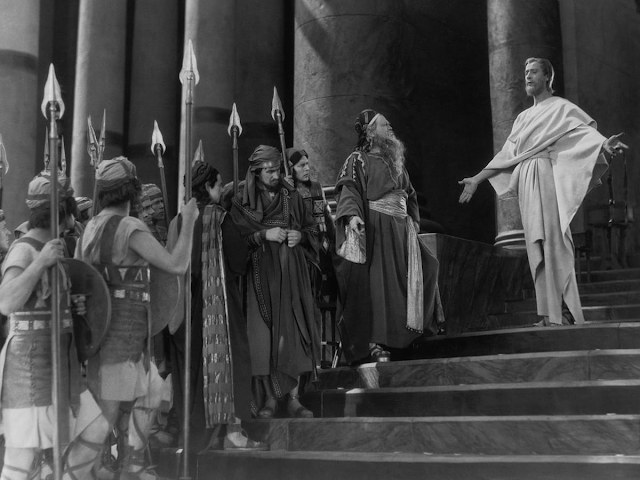The King of Kings (1927)
Cecil B. DeMille's "The King of Kings"
Cecil B. DeMille left Paramount in 1924, despite helping to found the company 11 years earlier. There were many reasons for his departure. One of the reasons being DeMille's arguing with Adolph Zukor about the extravagance of his pictures, as well as going over production costs. As many film scholars know, you cannot think of a Cecil B. DeMille picture without thinking of extravagance. This extravagance not only signified a DeMille film, but also is the foundation of the idea of 'Hollywood,' which DeMille essentially lit the match for. DeMille went to work for the Producers Distributing Company, in the hopes of producing his own films. DeMille did not find much success at this new company however and eventually left with the introduction of talking pictures. There was one singular film DeMille made with Producers Distributing Company, though. This film was his iconic biblical epic, "The King of Kings."
Up until "The King of Kings," the visual image of Jesus Christ had not yet been rendered on the film screen. Fred Niblo's 1925 epic "Ben-Hur" told a story involving the tale of Christ yet did not show his face or body in any way. The image of Jesus was constantly out of shot. However, Cecil B. DeMille wanted to do a rendering of the famous biblical hero. The film portrays the last days of Jesus, from his gathering of his apostles to his death and resurrection. DeMille does not deviate from the bible in any way. He even uses real bible inscriptions as the film's title cards. In this way, the film is a straightforward reproduction of the story of Christ and in no way acts as an interpretation of the events or offers opinions about the story. With the story of Christ, DeMille continues in a thematic through-line for his work: a criticism of the moral corruption of the ruling class and the spiritual need for everyday people to connect with a greater power or purpose.
The film received rave reviews upon its release in 1927. It was also a commercial hit. Over 500 million viewers flocked to the theater to see the biblical tale of Christ play out on screen. It is also considered by many to be one of DeMille's crowning achievements.




Comments
Post a Comment